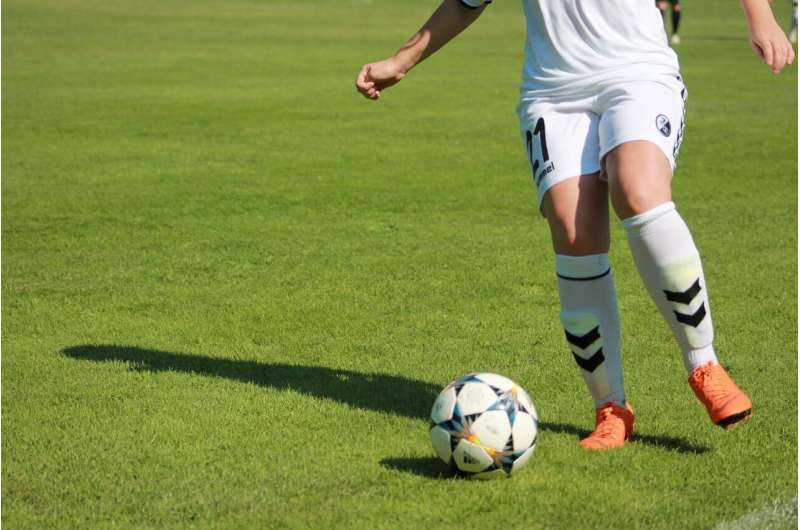This article has been reviewed according to Science X's editorial process and policies. Editors have highlighted the following attributes while ensuring the content's credibility:
fact-checked
trusted source
proofread
What losing a team member in soccer can teach us about business

There are a lot of reasons why Team USA had its worst showing ever in the 2023 Women's World Cup, but one of the most cited has been injuries, with the absence of multiple key players leading to roster issues that affected every position.
It's a situation that anyone who has worked on any team—from sports to business—can likely identify with. Being down a person often means that someone else is picking up that work, throwing off team dynamics and potentially causing top performers to burn out.
There's plenty of anecdotal evidence that this phenomenon exists, but Travis Maynard, the senior associate dean of academic programs within the Colorado State University College of Business, wanted to quantify it. So, he and researchers from multiple other universities analyzed data from 2,280 soccer games in the English Premier League to determine how they fared after losing team members. Their work was recently published in the Group & Organization Management journal.
"I'm passionate about teams, and I'm always looking for ways to learn more about how they operate," Maynard said. " As a sports fan, I know the team dynamics encountered in various sports contexts aren't that much different from those encountered in an actual office."
What should a manager or coach do when their team loses a key member? Here are some key points from Maynard's research.
Find a temporary replacement versus going without
Often if a team is down someone, at least temporarily, the remaining members end up splitting that person's work among each other, on top of their typical duties.
Maynard's research found that in English Premier League teams—like when a player receives a red card and can't be replaced—it's harmful for the team's overall coordination and performance.
"The takeaway for businesses is to find a substitute—even if it's a temporary one," Maynard said.
Otherwise, he said, if members have to carry the burden for a missing teammate, those members who have to carry excess workload may look for other opportunities, forcing managers to make yet another replacement during an already tenuous time.
"The takeaway is: If you have turnover, how you handle it is important," Maynard said. "Not asking four people to do the work of five is helpful. Instead, look for another resource outside the team, even on a temporary basis to help plug the hole. Otherwise, you'll see a decline in performance."
A full team is great, but they also need the right dynamics
The 2023 U.S. Women's World Cup team had multiple young, new members and an "all-business" atmosphere—something different from the winning 2019 squad, which was made up of a group of veterans who called themselves "best friends" on and off the pitch.
Maynard said his research showed the value of teams meshing together well—and that some of these positive dynamics may be attributable to how often individuals had worked together within the current and prior teams. So, when a veteran leaves, it may be better to consider the extent to which the replacement has worked with other members of the team previously.
"We found that familiarity helped, and how much a team worked together previously increased their chances for success in the current season—especially in situations where the team had to overcome challenges caused by the need to replace members in a game or play with one less member," Maynard said. "For hiring managers, based on this result, I'd recommend that if faced with a situation where you need to replace a team member on a team, consider replacing that person with someone who has familiarity with the existing group either within the current organization or in prior organizations.
"Our research showed this increased the odds of success."
More information: Surabhi Pasarakonda et al, How Team Familiarity Mitigates Negative Consequences of Team Composition Disruptions: An Analysis of Premier League Teams, Group & Organization Management (2023). DOI: 10.1177/10596011231193176
Provided by Colorado State University




















